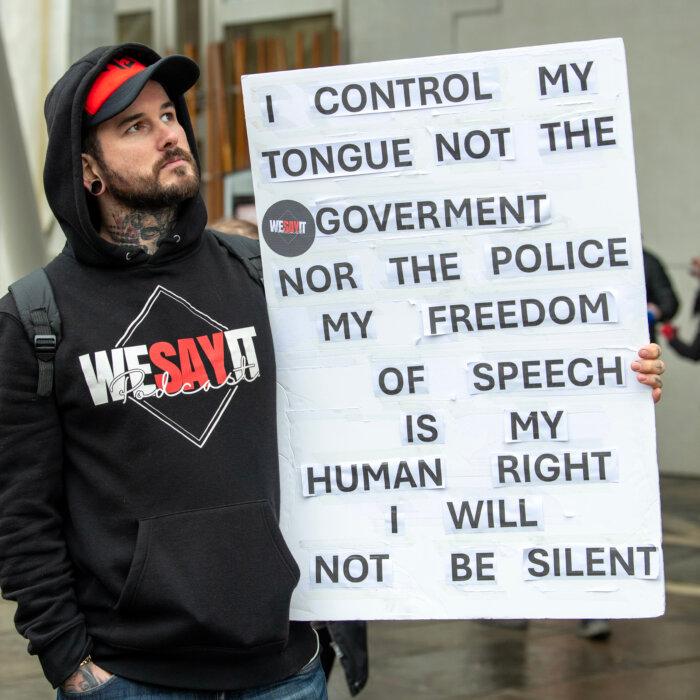The College of Policing’s chairman has called for an overhaul of the recording of non-crime hate incidents (NCHIs), saying they have become an impediment to policing.
The peer said the College of Policing wants to apply a “commonsense approach,” where officers who receive a complaint are able to say that something may be deemed offensive, but it is not a matter for the police.
Asked whether the NCHI category should be scrapped, Herbert replied, “Potentially.”
The former Conservative policing minister said he thought the category had “become an impediment to the police doing what we want the police to do,” which is preventing harm.
“I think that the category itself has become controversial and a distraction from what the police need to be doing,” he added.
He added that it needs to be “absolutely clear” that where incidents are trivial, they should not be recorded or recorded with that mechanism.
“I think we have to go further now and look at the whole system and ask whether it is correctly balanced because I think the public sense is that it is not,” the peer said.
Distraction From Policing
The remarks follow recommendations from Policy Exchange for NCHIs to be abolished because they “distract police from the fight against crime” and have a “chilling effect” on free speech.In one example given by the emergency services watchdog, a man reported members of the public for giving him “funny looks,” which he claimed were due to his ethnic appearance.
Free Speech Issues
However, the chairman of the National Police Chiefs’ Council said last month that police must investigate NCHIs to detect “precursors to violence.”Gavin Stephens said on Nov. 19 that the rioting over the summer showed that “hate left unaddressed, whether that’s propagated online or in person, has real-world consequences,” Stephens said.

Stephens made the remarks at a major policing conference, which was also attended by shadow home secretary Chris Philp, who had called for guidelines around non-crime hate incidents to be rewritten.
Philp had said officers “should be concentrating on investigating and preventing crime” and should only be investigating NCHIs where there is a “real risk of imminent criminality.”
“That is quite a high bar, and in practice, not one that is currently always being followed. Offensive speech is not the same as illegal speech,” he said.
Common-Sense Approach
An NCHI is where perceived hate incidents are reported to police and recorded, despite not being a crime.They were introduced following the 1999 inquiry into the 1993 murder of black teenager Stephen Lawrence, as part of a recommendation for police codes of practice to create a system for reporting and recording racist incidents and crimes.
Home Secretary Yvette Cooper said that officers should adopt a common sense and consistent approach to dealing with NCHIs.
“We should have a common-sense approach to policing decisions in every area across the country,” Cooper said.







